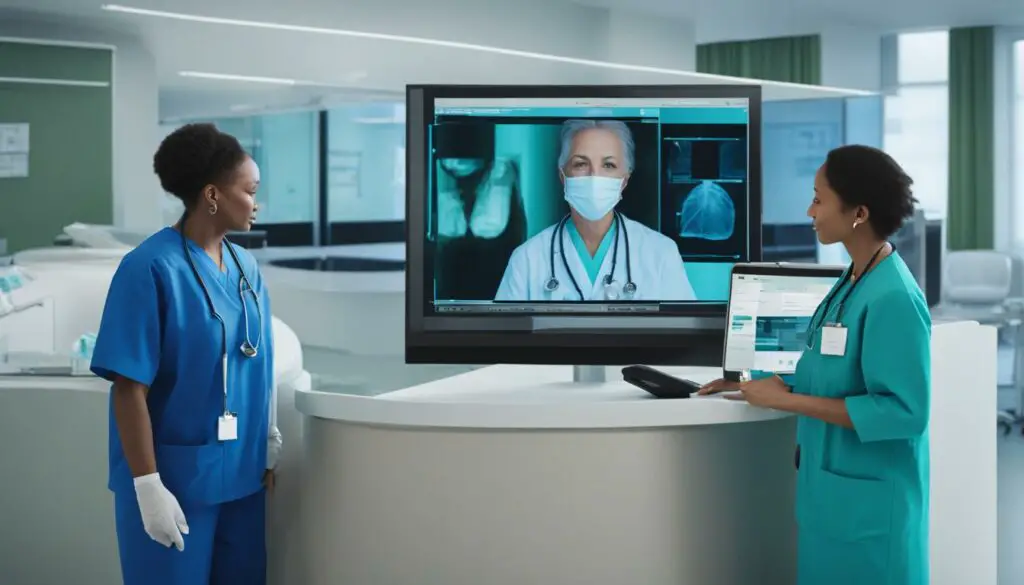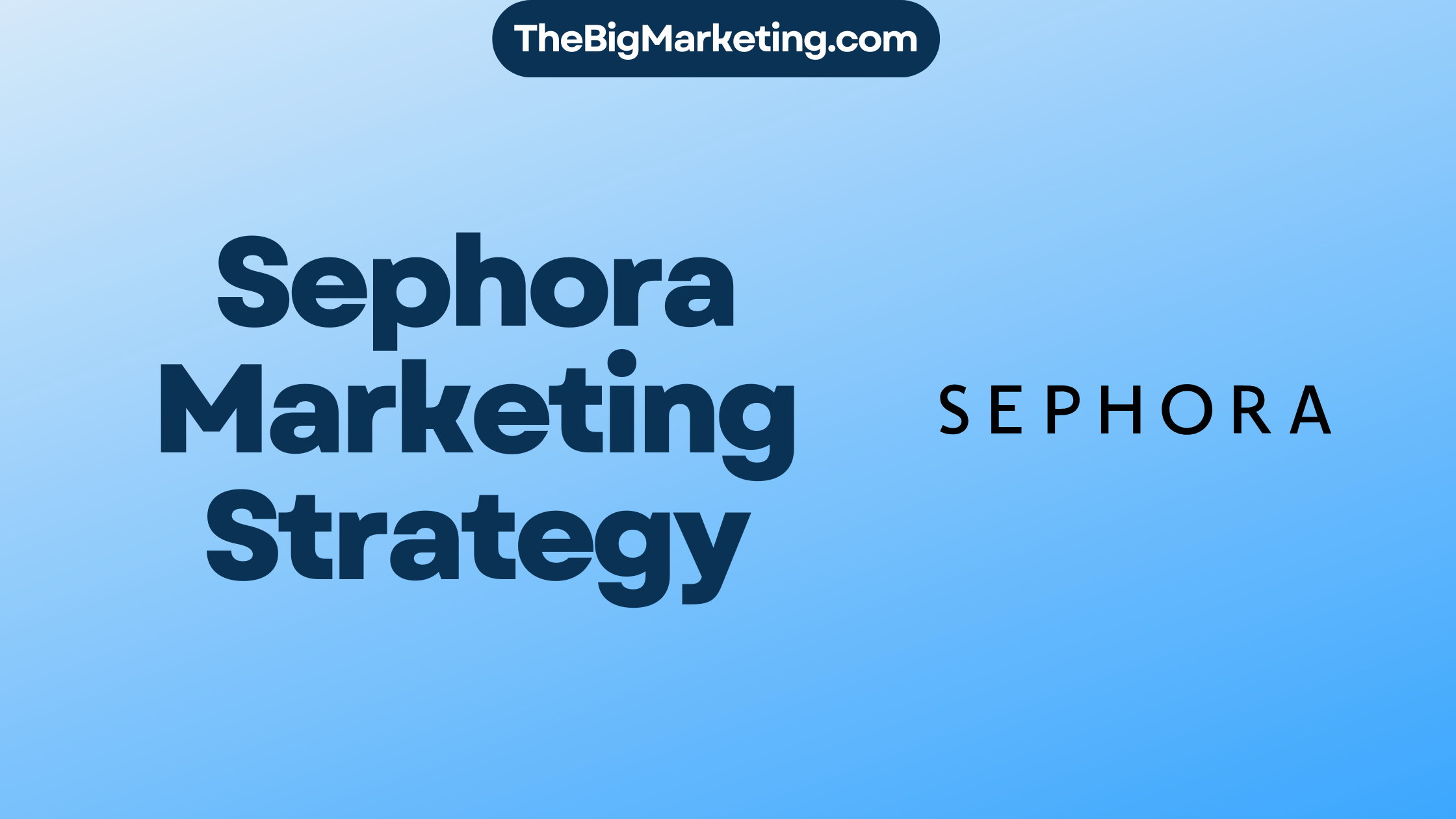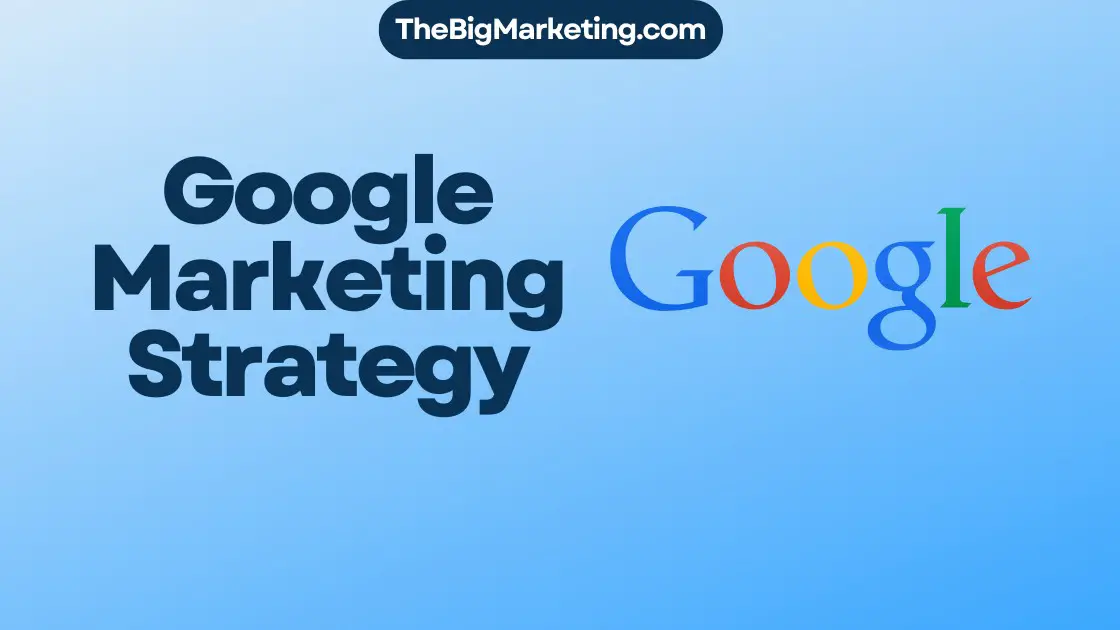The healthcare industry is highly competitive, and healthcare organizations need to implement effective marketing strategies to stay ahead. Digital marketing has become increasingly important in the healthcare sector, with organizations leveraging various tactics to promote their services and engage with patients. Marketing strategies for healthcare organizations encompass a wide range of activities, including advertising campaigns, branding tactics, and SEO strategies to improve online visibility.
With advancements in technology and changes in patient behavior, healthcare marketing is constantly evolving. It is crucial for healthcare organizations to stay updated and adapt to the latest marketing trends to remain relevant and increase revenue. In this article, we will explore the key marketing strategies that healthcare organizations should implement in 2024 to maximize their marketing efforts and achieve success in the competitive healthcare industry.
Key Takeaways:
- Effective marketing strategies are vital for healthcare organizations to enhance patient engagement and strengthen their brand presence.
- Digital marketing plays a key role in the healthcare industry, with organizations utilizing various tactics to promote their services.
- Healthcare marketing encompasses advertising campaigns, branding tactics, and SEO strategies to improve online visibility and reach a wider audience.
- Staying updated with the latest marketing trends is crucial for healthcare organizations to remain competitive and increase revenue.
- Implementing successful marketing strategies requires constant adaptation and understanding of patient behavior and technological advancements.
AI Driving Personalization in Healthcare Marketing
In the digital age, healthcare marketers are leveraging the power of artificial intelligence (AI) to drive personalization in their marketing efforts. By utilizing AI-powered analytics, healthcare organizations can gather valuable insights into patient demographics and behaviors, allowing them to create customized and targeted marketing campaigns. This level of personalization not only enhances patient engagement but also improves overall patient satisfaction.
One of the primary benefits of AI-driven personalization in healthcare marketing is the ability to deliver more relevant and engaging communications. By analyzing patient data, AI-powered analytics can identify individual preferences and tailor marketing messages accordingly, ensuring that patients receive the most pertinent information that resonates with their specific needs.
Furthermore, AI-driven personalization enables healthcare organizations to create customized treatment plans. By gathering insights into patients’ medical history, diagnoses, and treatment outcomes, AI-powered analytics can suggest personalized treatment options, improving patient outcomes and satisfaction.
AI-powered analytics also play a crucial role in targeted marketing campaigns. By understanding patient behaviors and preferences, healthcare marketers can segment their target audience and design marketing strategies that specifically cater to each segment. This level of targeted marketing increases the chances of reaching the right patients with the right message at the right time, optimizing marketing resources and maximizing return on investment (ROI).
In addition to personalization, AI-powered analytics assist healthcare organizations in better resource allocation and anticipating future trends. By analyzing data from various sources, including patient interactions, digital marketing campaigns, and market trends, AI-powered analytics can provide valuable insights that guide strategic decision-making. With these insights, healthcare organizations can allocate resources more effectively, refine marketing strategies, and proactively plan for future patient needs.
However, it’s essential to note that with the increased use of AI in healthcare marketing, maintaining HIPAA compliance is paramount. As AI relies on analyzing vast amounts of patient data, it’s crucial to ensure that patient privacy and data security are protected. Healthcare organizations must adhere to HIPAA regulations and implement stringent measures to safeguard patient information at all stages.
In summary, AI is driving personalization in healthcare marketing, revolutionizing how healthcare organizations engage patients and market their services. By leveraging AI-powered analytics, healthcare marketers can deliver tailored communications, create customized treatment plans, and implement targeted marketing campaigns. However, it’s crucial to prioritize HIPAA compliance to protect patient privacy and ensure data security.
Website User Experience Continues to Matter
A responsive and well-designed website is essential in healthcare marketing to provide a seamless user experience. A user-friendly website not only attracts patients but also keeps them engaged and satisfied with the services provided. Here are some key elements of website user experience that healthcare organizations should consider:
1. Two-way Chat
Integrate a two-way chat feature on your website to enable real-time communication between patients and healthcare professionals. This enhances patient engagement by allowing them to ask questions, seek assistance, or schedule appointments conveniently.
2. Online Appointment Scheduling
Streamline the appointment booking process by offering an online scheduling system on your website. This feature allows patients to book appointments easily and reduces administrative costs by automating the scheduling process.
3. Secure Patient Portals
Ensure the implementation of HIPAA-compliant patient portals on your website. These portals provide a secure platform for patients to access their medical records, receive test results, and communicate with healthcare providers securely.
4. Engaging Educational Content
Provide educational content to patients in engaging formats such as videos, animations, and infographics. This not only enhances patient education but also keeps them informed about their conditions and treatment options.
Benefits of a User-Friendly Website
| Benefits | Description |
|---|---|
| Improved Patient Engagement | A user-friendly website enhances patient engagement by providing easy access to information, appointment scheduling, and communication with healthcare professionals. |
| Reduced Administrative Costs | Online appointment scheduling and secure patient portals streamline administrative processes, reducing costs associated with manual scheduling and record management. |
| Enhanced Patient Satisfaction | An intuitive and responsive website improves patient satisfaction by offering a seamless user experience and convenient access to healthcare resources. |
| Increased Brand Reputation | A well-designed website reflects positively on the healthcare organization, improving its brand reputation and credibility among patients. |
By focusing on website user experience, healthcare organizations can improve patient engagement, satisfaction, and ultimately drive better outcomes. A user-friendly website acts as a gateway to connect with patients and deliver high-quality healthcare services.
HIPAA Continues to Play an Important Role
As healthcare marketers strive to personalize marketing communications, it is crucial to ensure HIPAA compliance in handling Protected Health Information (PHI). HIPAA, or the Health Insurance Portability and Accountability Act, is a federal law that establishes privacy and security standards for healthcare organizations.
Protecting patient privacy and maintaining the confidentiality of sensitive health data is essential in healthcare marketing. Failure to comply with HIPAA regulations can result in significant penalties and reputational damage. Therefore, healthcare organizations must adopt privacy-friendly alternatives and utilize Customer Data Platforms (CDPs) that are HIPAA-compliant.
Implementing advanced encryption and security measures can help safeguard Protected Health Information from unauthorized access and breaches. Additionally, blockchain technology has emerged as a promising solution for secure data management in healthcare marketing.
A privacy-friendly approach not only ensures legal compliance but also builds trust with patients. When individuals feel confident that their personal information is protected, they are more likely to engage with healthcare marketing campaigns and share their data willingly.
In summary, healthcare marketers must prioritize HIPAA compliance to maintain the privacy and security of patient data. By adopting privacy-friendly alternatives, utilizing HIPAA-compliant customer data platforms, and implementing robust security measures, healthcare organizations can enhance their marketing efforts while safeguarding sensitive information.
Multi-Channel Marketing Integrates Patient Communication
Multi-channel marketing is a powerful strategy utilized by healthcare organizations to effectively reach and engage patients across various platforms and devices. This approach allows healthcare marketers to connect with patients through channels such as email, social media, mobile apps, and websites, ensuring a seamless and integrated experience.
By aligning messaging with the patient’s stage of interest, healthcare organizations can optimize their marketing resources and create targeted communications. For example, a patient who is in the awareness stage may receive educational content and relevant information about the organization’s services. On the other hand, a patient in the decision-making stage may receive personalized offers and incentives to encourage them to choose the organization.
A key benefit of multi-channel marketing is the ability to collect valuable patient and consumer information. As patients interact with different channels, healthcare organizations can gather data on their preferences, behaviors, and needs. This data can then be used to further optimize marketing strategies and personalize future communications, ensuring a more tailored and effective approach.
The Impact of Multi-Channel Marketing in Healthcare
Multi-channel marketing has transformed the way healthcare organizations communicate with patients and promote their services. Here are some key advantages:
- Enhanced patient engagement: By reaching patients through multiple channels, healthcare organizations can increase patient engagement and encourage active participation in their healthcare journey.
- Improved patient satisfaction: By providing targeted and personalized messages, healthcare organizations can enhance patient satisfaction and build strong relationships.
- Increased brand awareness: Multi-channel marketing helps healthcare organizations establish and strengthen their brand presence, ensuring their services are top-of-mind for patients.
- Effective communication: By utilizing targeted messaging, healthcare organizations can deliver information and updates to patients in a timely and relevant manner.
Overall, multi-channel marketing plays a vital role in healthcare marketing by integrating patient communication across various platforms. This approach enables healthcare organizations to effectively engage patients, personalize marketing messages, and optimize resources for improved patient satisfaction and better healthcare outcomes.
Local and Location-based SEO for Success
In the highly competitive healthcare marketing landscape, improving online visibility and attracting local patients is essential for healthcare organizations. Local SEO strategies play a crucial role in achieving these goals by optimizing the website for specific geographic locations.
By incorporating targeted local keywords into website content, meta tags, and headers, healthcare organizations can increase their visibility in local search engine results. This helps them connect with potential patients who are actively searching for healthcare services in their area.
Creating a Google Business Profile is another vital step in improving online visibility and attracting local patients. A Google Business Profile enables healthcare organizations to provide accurate contact information, including address, phone number, and hours of operation, making it easier for patients to find and contact them.
Additionally, by including the healthcare organization’s details on Google Maps, patients can easily locate the facility and obtain directions. This seamless experience improves user satisfaction and enhances the overall online visibility of the healthcare organization.
By implementing effective local and location-based SEO strategies, healthcare organizations can stand out from the competition and attract local patients who are actively seeking their services. Enhancing online visibility through local SEO and Google Business Profile can significantly contribute to the success of healthcare marketing efforts.
SaaS Healthcare Marketing Platforms Drive Digital and Print Marketing
Healthcare organizations can benefit greatly from utilizing SaaS healthcare marketing platforms to streamline their digital and print marketing strategies. These platforms offer a wide range of features and tools that enable healthcare organizations to enhance their marketing efforts, improve brand awareness, and reach their target audience more effectively.
One of the key advantages of SaaS healthcare marketing platforms is the provision of innovative analytics tools. These platforms collect and analyze data from various marketing channels, providing valuable insights into the effectiveness of digital and print campaigns. By gaining a deeper understanding of audience behavior and engagement, healthcare organizations can make data-driven decisions to optimize their marketing strategies.
Additionally, SaaS healthcare marketing platforms enhance lead generation by automating various aspects of the process. From capturing leads through online forms to nurturing them through targeted email campaigns, these platforms streamline the entire lead management process. This not only saves time and resources but also improves the overall efficiency and effectiveness of lead generation efforts.
Efficient resource allocation is another significant benefit of SaaS healthcare marketing platforms. These platforms enable healthcare organizations to allocate their marketing budget wisely by identifying the most effective channels, campaigns, and strategies. By eliminating guesswork and maximizing return on investment, organizations can make informed decisions about resource allocation to achieve their marketing objectives.
By automating marketing processes, healthcare organizations can focus more on what matters most – patient care. SaaS healthcare marketing platforms eliminate the manual work involved in campaign management, allowing healthcare professionals to dedicate more time to providing quality care to patients. This not only improves patient satisfaction but also strengthens the organization’s reputation and brand awareness.
In conclusion, SaaS healthcare marketing platforms offer numerous advantages for healthcare organizations in driving both digital and print marketing strategies. With innovative analytics tools, enhanced lead generation capabilities, and efficient resource allocation, these platforms enable organizations to optimize their marketing efforts, improve brand awareness, and focus on delivering exceptional patient care.
Video Continues to Drive Patient Engagement
Video content has proven to be a powerful tool for healthcare marketers in driving patient engagement. By leveraging the visual appeal and storytelling capabilities of videos, healthcare organizations can effectively communicate complex medical information, showcase their services, and deliver educational content in a concise and engaging manner.
One of the key advantages of video marketing is its ability to adapt to different platforms and devices. Streaming video and connected television advertising allow healthcare organizations to reach audiences across a variety of devices, ensuring that their message is delivered to patients wherever they are. This accessibility helps in increasing patient engagement and ultimately improving healthcare outcomes.
Furthermore, webinars and video demonstrations have become increasingly popular among busy healthcare providers. These formats allow for interactive learning, enabling providers to enhance their knowledge and skills in a convenient and time-efficient way. By catering to the needs of healthcare professionals, organizations can foster stronger relationships and facilitate collaboration in patient care.
To further demonstrate the impact of videos in healthcare marketing, consider the following statistics:
| Statistic | Data |
|---|---|
| 85% | Percentage of internet users in the United States who watch online videos (source: eMarketer) |
| 80% | Percentage of consumers who prefer watching a video about a product or service over reading a text (source: HubSpot) |
| 74% | Percentage of healthcare consumers who have watched an online video related to their health (source: Think with Google) |
These statistics highlight the widespread popularity and effectiveness of videos in capturing the attention and engagement of healthcare consumers. By incorporating video content into their marketing strategies, healthcare organizations can optimize patient engagement and drive positive outcomes.

Reputation Management is a Marketing Asset
Reputation management is a critical aspect of healthcare marketing. In today’s digital age, online reviews and patient feedback have a significant impact on patient decisions. It is essential for healthcare organizations to proactively manage and collect patient reviews to enhance their online reputation and attract more patients.
By implementing effective reputation management strategies, healthcare organizations can improve their online visibility, generate leads, and build trust among potential patients. Positive online reviews serve as a valuable endorsement and contribute to the organization’s brand appeal.
One way to encourage patient feedback and reviews is by creating a seamless patient experience throughout their healthcare journey. By prioritizing patient satisfaction and addressing any concerns promptly, organizations can foster positive patient relationships and increase the likelihood of receiving positive reviews.
Additionally, organizations can utilize social listening tools to monitor and respond to online reviews and feedback. This allows them to address any negative reviews promptly and demonstrate their commitment to patient satisfaction.
| Benefits of Reputation Management in Healthcare Marketing |
|---|
| 1. Increased online visibility |
| 2. Enhanced trust and credibility |
| 3. Improved patient acquisition |
| 4. Higher patient retention |
| 5. Competitive advantage |
Reputation management should be an integral part of any healthcare organization’s marketing strategy. By actively managing and leveraging patient feedback, healthcare organizations can establish a positive online reputation, attract more patients, and ultimately drive business growth.
Challenges and Importance of Healthcare Marketing
Marketing in the healthcare industry presents unique challenges for organizations. Attracting new patients and engaging with existing ones requires healthcare marketers to employ effective strategies that establish trust, drive patient engagement, and generate revenue. In this section, we explore the significance of staying updated with the latest marketing trends to navigate the evolving healthcare landscape successfully.
The Challenge of Attracting Patients
Healthcare organizations face the continuous challenge of attracting new patients. With increasing competition and evolving patient expectations, it is crucial for marketers to stay ahead by deploying innovative marketing strategies that resonate with their target audience. Building brand awareness, implementing localized marketing efforts, and optimizing digital channels are key factors in driving patient acquisition.
Engaging and Retaining Patients
Patient engagement plays a vital role in the success of healthcare organizations. By implementing patient-centric marketing initiatives, healthcare marketers can foster stronger relationships with their patients, improve patient satisfaction, and drive loyalty. Customized messaging, personalized communication channels, and relevant content are essential in engaging patients and establishing long-term relationships.
Building Trust in the Healthcare Relationship
Trust is a fundamental element in healthcare marketing. Patients must have confidence in the healthcare providers they choose, and effective marketing strategies play a significant role in building and maintaining trust. By delivering transparent and informative content, showcasing positive patient experiences, and upholding ethical standards, healthcare organizations can establish trust with their target audience.
Revenue Generation through Effective Marketing
While patient care is the primary focus of healthcare organizations, revenue generation is equally important for sustainability. Healthcare marketers need to implement revenue-focused marketing strategies that drive patient acquisition, increase patient lifetime value, and optimize resource allocation. By leveraging data-driven insights, healthcare organizations can make informed decisions that maximize revenue and deliver positive financial outcomes.
| Benefits of Effective Healthcare Marketing | Challenges in Healthcare Marketing |
|---|---|
|
|
Conclusion
Effective marketing strategies are crucial for healthcare organizations to thrive in the ever-evolving healthcare industry. By leveraging AI-driven personalization, optimizing website user experience, ensuring HIPAA compliance, adopting multi-channel marketing, and embracing video content, healthcare organizations can enhance patient engagement, strengthen their brand presence, and achieve success. Reputation management and local SEO also play vital roles in building trust and attracting patients. It is essential for healthcare organizations to stay proactive and adapt to the changing marketing landscape to achieve their goals.
Marketing Strategies For Healthcare Organizations
Healthcare marketing requires a multifaceted approach that takes into account the unique challenges and dynamics of the industry. By utilizing AI-driven personalization, healthcare organizations can deliver personalized marketing messages to their target audience, improving patient engagement and satisfaction. Optimizing website user experience is also crucial in providing a seamless and user-friendly platform for patients to access information and interact with the organization. With the rise of digital communication channels, adopting multi-channel marketing strategies allows healthcare organizations to reach and engage patients across various platforms and devices. Embracing video content further enhances patient engagement and helps healthcare providers connect with their target audience on a deeper level. Reputation management and local SEO are invaluable in building trust and attracting patients, ultimately driving the success of healthcare marketing efforts.
As the healthcare industry continues to evolve, healthcare organizations must stay proactive in their marketing strategies. By staying updated with the latest trends and embracing effective marketing strategies, healthcare organizations can enhance patient engagement, strengthen their brand presence, and achieve success in the competitive healthcare industry.
FAQ
What is AI-driven personalization in healthcare marketing?
AI-driven personalization refers to using artificial intelligence to customize marketing messages and communications based on patient demographic information and behaviors. This allows for more relevant and engaging communications, customized treatment plans, and targeted marketing campaigns. However, it is important to maintain HIPAA compliance when using AI-driven personalization in healthcare marketing.
Why is website user experience important in healthcare marketing?
Website user experience is essential in healthcare marketing to provide a seamless and engaging experience for patients. A well-designed and responsive website can include features such as two-way chat, online appointment scheduling, and secure patient portals, which improve patient engagement, reduce administrative costs, and provide educational content in engaging formats like video and animation.
What is the role of HIPAA in marketing communications?
HIPAA plays an important role in marketing communications for healthcare organizations. It requires the adoption of privacy-friendly alternatives and the use of HIPAA-compliant Customer Data Platforms (CDPs) when handling Protected Health Information (PHI). Advanced encryption, security measures, and blockchain technology can be utilized to protect PHI in marketing communications.
What is multi-channel marketing in healthcare?
Multi-channel marketing in healthcare refers to the strategy of reaching and engaging patients across various platforms and devices. By aligning messaging with the patient’s stage of interest, healthcare organizations can maximize marketing resources and create targeted communications. This approach also helps in collecting patient and consumer information for further optimization.
Why is local SEO important for healthcare organizations?
Local SEO is crucial for healthcare organizations to improve their online visibility in specific geographic locations. By optimizing their website for local keywords and creating a Google Business Profile, healthcare organizations can attract patients from the local community. It is important to provide accurate contact information and include healthcare organization details on Google Maps to enhance local visibility.
How can SaaS healthcare marketing platforms benefit healthcare organizations?
SaaS healthcare marketing platforms streamline digital and print marketing strategies for healthcare organizations. These platforms provide innovative analytics tools, enhance lead generation, improve resource allocation, and automate marketing processes. By leveraging these platforms, healthcare organizations can focus more on patient care and brand awareness.
How can video content be used in healthcare marketing?
Video content is an effective tool for healthcare marketers to drive patient engagement. Organizations can create videos that simplify complex medical information, showcase services, and deliver educational content. Streaming video and connected television advertising help reach audiences across devices. Webinars and video demonstrations are also effective in connecting with busy healthcare providers.
Why is reputation management important for healthcare organizations?
Reputation management is crucial for healthcare organizations as online reviews and recommendations significantly influence patient decisions. By proactively managing and collecting patient reviews, healthcare organizations can improve their online visibility, generate leads, and build trust. Positive reviews become a valuable source for lead generation and brand appeal.
What are the challenges in healthcare marketing?
Healthcare organizations face unique challenges in attracting patients and engaging with existing ones. Marketing strategies are essential for establishing trust, increasing patient satisfaction, and generating revenue. Staying updated with the latest marketing trends is crucial to navigate the evolving healthcare landscape successfully.
What are effective marketing strategies for healthcare organizations?
Effective marketing strategies for healthcare organizations include leveraging AI-driven personalization, optimizing website user experience, ensuring HIPAA compliance, adopting multi-channel marketing, embracing video content, managing reputation, and focusing on local SEO. These strategies help enhance patient engagement, strengthen brand presence, and achieve success in the healthcare industry.








